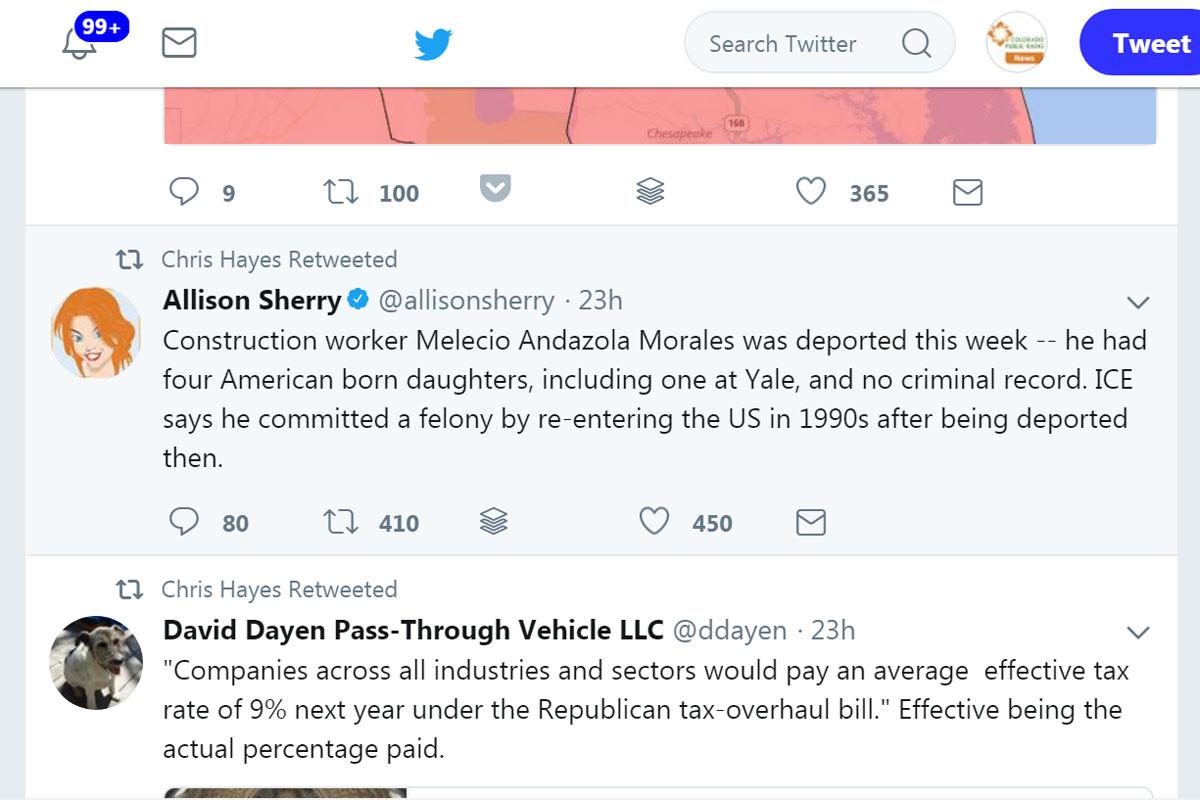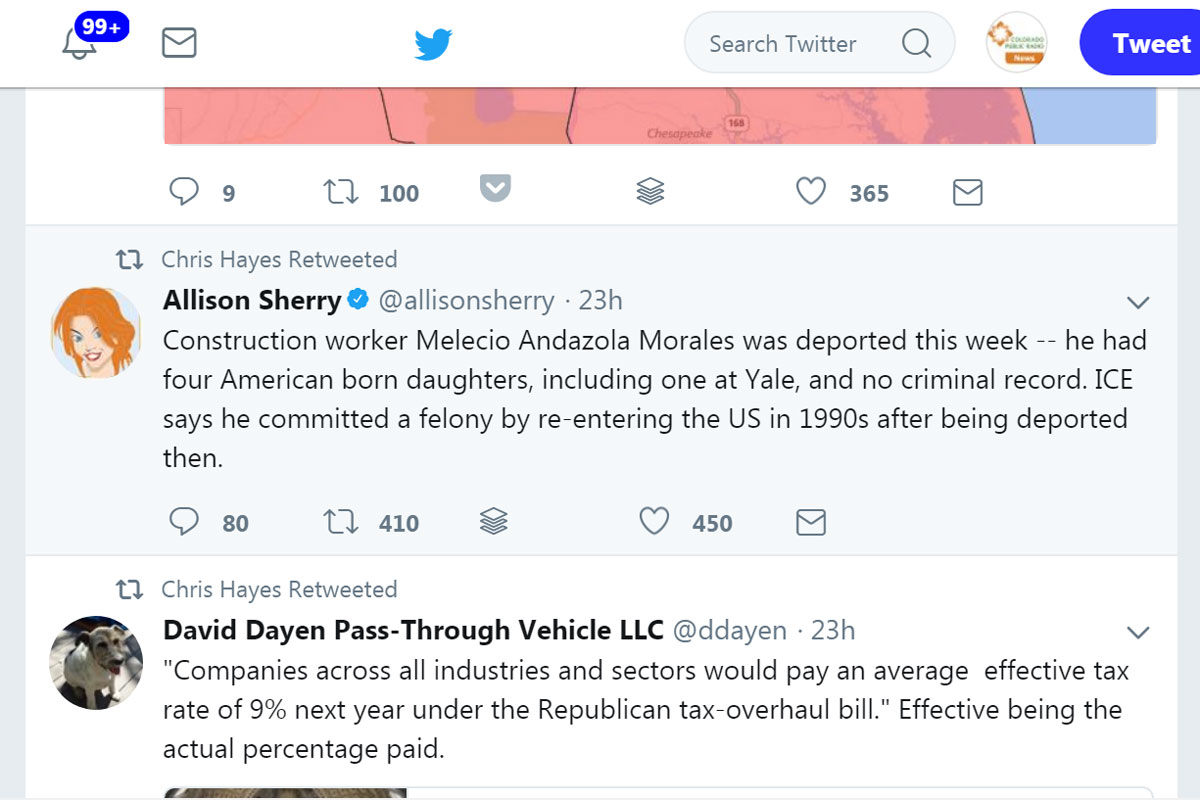

I've been reporting on immigration and removals over the past six months and had been following Melecio Morales' case. It was higher profile than most: several members of Congress had written letters on his behalf, his oldest daughter — who is attending Yale University — had started a Go Fund Me for her dad and pushed a high-profile social media campaign calling for his release.
On Dec. 15, 2017, Melecio Morales was removed from the country.
Morales was deported in the 1990s but re-entered the U.S. in 1997. He's been working construction and living here ever since. He didn't have a criminal record and had four American born daughters, as well as an elderly mother he was supporting, who is a legal citizen. Federal authorities contend that Morales committed a felony by re-entering the United States after being deported the first time.
Construction worker Melecio Andazola Morales was deported this week -- he had four American born daughters, including one at Yale, and no criminal record. ICE says he committed a felony by re-entering the US in 1990s after being deported then.
His lawyer and I were texting Monday and he told me Morales was deported. I wrote up a short item for the next day’s news and tweeted it out when I saw an immigrant rights group was shaming federal officials for the timing of the deportation before the holidays. My tweet went viral thanks, in part, to a retweet by Chris Hayes, a widely read liberal commentator and host on MSNBC.
That kind of attention brings commentary from all sides, including a few emails. It’s a good window into the debate immigration, enforcement and deportation has become in the first year of the Trump administration.









